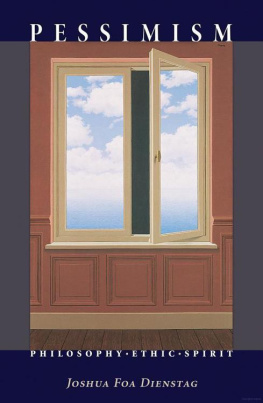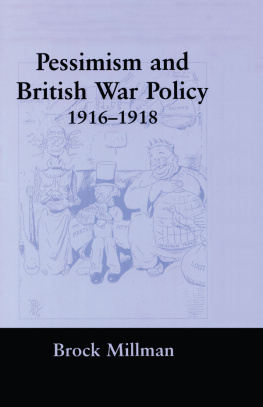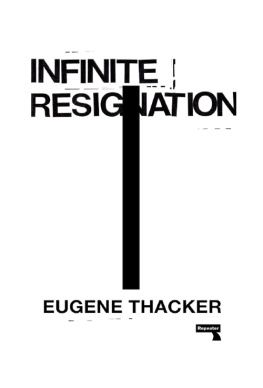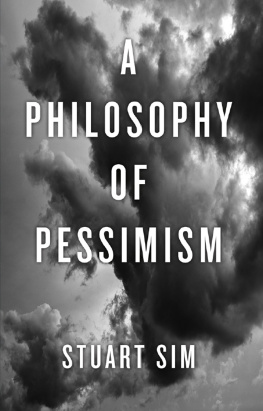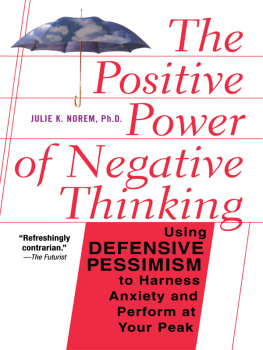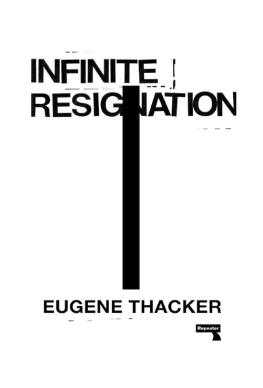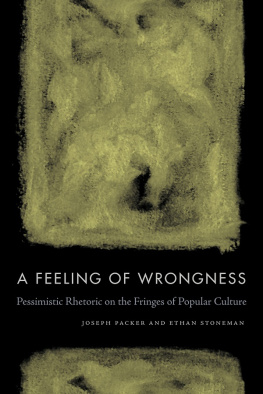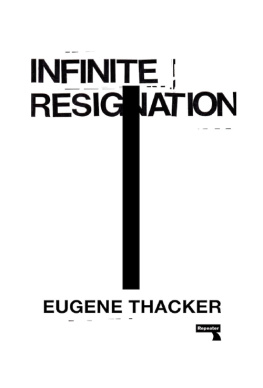CONTENTS
Preface
Acknowledgments
Abbreviations
PART I
CHAPTER ONE
The Anatomy of Pessimism
PART II
CHAPTER TWO
A Philosophy That Is Grievous but True: Cultural Pessimism in Rousseau and Leopardi
CHAPTER THREE
The Evils of the World Honestly Admitted: Metaphysical Pessimism in Schopenhauer and Freud
CHAPTER FOUR
Consciousness Is a Disease: Existential Pessimism in Camus, Unamuno, and Cioran
PART III
CHAPTER FIVE
Nietzsches Dionysian Pessimism
CHAPTER SIX
Cervantes as Educator: Don Quixote and the Practice of Pessimism
CHAPTER SEVEN
Aphorisms and Pessimisms
CHAPTER EIGHT
Pessimism and Freedom (The Pessimist Speaks)
Afterword
Bibliography
Index
PREFACE
PERHAPS I should get the most difficult matterto some no doubt the most shocking matterout of the way first: namely, that this book on the pessimistic spirit is not an attack on that spirit but, instead, an appraisal and, indeed, an endorsement of it, at least in a certain form. That this will strike most readers as perverse cannot be helped. Indeed, it is my first request of readers that they take this reaction, quite common in itself, and examine it. Why is it that pessimism, once a respectable if not popular philosophy, has become so despised in our culture that the word pessimist can be used today as a term of political or intellectual abuse? Look in any American newspaper for a few days and one will immediately see that this is true. It is enough to label an idea (or a person) pessimistic in order to be allowed to dismiss it (or him) without further discussion as irrational, emotional, indefensible or, worst of all, unpatriotic.
Why should this be? After all, an expectation that things will go badly is not, on the surface, any more or less rational than the expectation that things will go well. An extended examination of the question could well yield a judgment in favor of the one or the otherbut the label is used precisely to foreclose such an inquiry. Pessimism is dismissed before serious debate begins, not during or afterward. One might venture that, somehow, the idea of pessimism is so threatening that people decline to consider it seriously because they are afraid of the effects such a consideration might produce. But then this phenomenon itself should be enough of a curiosity to require investigation. While those so fearing might be tempted to stop at this point, I can at least dispute the common perception that pessimism must somehow necessarily issue in behaviors of resignation and withdrawal.
Of course, some pessimisms might result in such a posture. But to assume that all pessimists are thus is akin to claiming that all optimists must arrive at the attitude of Dr. Pangloss, who believed that this was the best of all possible worlds. Not every theory of progress is Panglossian and, likewise, not all pessimisms are suicidal or nihilistic. This book does not defend all pessimisms, then, but a more particular one that will emerge in the course of its chapters. One point of my title, however, is to reverse the customary understanding of pessimism as something necessarily dispiriting. In the right hands, pessimism can beand has beenan energizing and even a liberating philosophy. While it does indeed ask us to limit and eliminate some of our hopes and expectations, it can also provide us with the means to better navigate the bounded universe it describes.
There exists today an entire literature, both scholarly and popular, devoted to blaming pessimism for whatever spiritual crisis is thought to occupy us at the moment. Indeed, pessimism is such a flexible term of abuse that it has readily been applied to almost every nonliberal political theory that has appeared in this century. Existentialism, psychoanalysis, critical theory, and postmodernism are all routinely labeled pessimistic, as if that were enough to discredit them. While the term is more appropriate in some of these cases than others, thought should be given to the question of why this word functions so well as a gesture of dismissal. In part, this is a case of killing the messenger: philosophers who have written in these traditions have often presented a bleak picture of human existence and thereby offended modern sensibilities. But of course the authors of these images do not celebrate such a situation; they simply consider it their duty to call attention to it. Critics have often mistaken a depiction of the world for a choice about our future, as if philosophers had rejoiced at the decline or decay that they described. But this is like deriding scientists who warn of global warming because their models give apocalyptic predictions. Do we normally assume that such scientists want their predictions to come true? Miguel de Unamuno once complained about a style of theology that always attacked the baneful consequences of opposing views: the baneful consequences of a doctrine may prove, at best, that the doctrine is baneful, but not that it is false (TSL 104). Rather than address the threats to happiness that the world provides on a daily basis, critics of pessimism have focused on the bearers of ill tidings and hoped that silencing them would abolish the baneful consequences as well. Yet despite the abuse they attract pessimists keep appearingand this should not be surprising since the world keeps delivering bad news.
Instead of blaming pessimism, perhaps we can learn from it. Rather than hiding from the ugliness of the world, perhaps we can discover how best to withstand it. As I noted above, pessimisms critics have often assumed that it must issue in some sort of depression or resignation. But this assumption says more about the critics than about their targets. Who is it, exactly, that cannot bear a story unless guaranteed a happy ending? Pessimists themselves have often been anything but resigned. Indeed, they have taken it as their task to find a way to live with the conclusions they have arrived at, and to live well, sometimes even joyfully. If this cannot be true for all of us, it is not the pessimists who are to blame, but the problems they grapple with.
The pessimism that is offered here is neither a theory of history nor (as I will emphasize below) an emotional complex. Instead, it is what used to be called an ethic and what today might be called a technique of the self or a form of life. More modestly, pessimism is a philosophical sensibility from which political practices can be derived. It is a proposed stance from which to grapple with a world that we now recognize as disordered and disenchanted. It includes judgments about history and the possible course of our civilization, but it is not really a detailed set of predictions about future politics or economics. As such, pessimism stands opposed to a modern optimism that has taken many forms. Most, if not all, political writers today are ready to recognize and reject the historical utopianism found in the philosophical descendants of Hegel. Pessimism, however, is equally critical both of that tradition and of the less flamboyant but, from its perspective, similarly progressive liberalism found in the descendants of Locke, Kant, Mill, and Dewey. Indeed, one of the intellectual benefits of reviving the tradition of pessimism is the way that it causes us to reassess the theoretical debates of the last three centuries so that we see more clearly how the various forms of optimism have been allied. From this perspective, the great divide in modern political theory is not between the English-speaking and the Continental schools, but between an optimism that has had representatives in both of these camps and a pessimism whose very existence those representatives have sought to suppress.
Recently there has been a great deal said about reviving the philosophy of the selfas if none had been written since late antiquity. It is my contention here that philosophies of the self have remained with us all along, often unremarked as such, and often under the name of pessimism. Like the Stoics and Epicureans, the pessimists have been concerned to locate the best path toward freedom in a political environment that presents the individual with a landscape whose basic features are well beyond his or her controla vast, disordered, and dangerous terrain that confronts us as La Mancha confronted Don Quixote.
Next page
